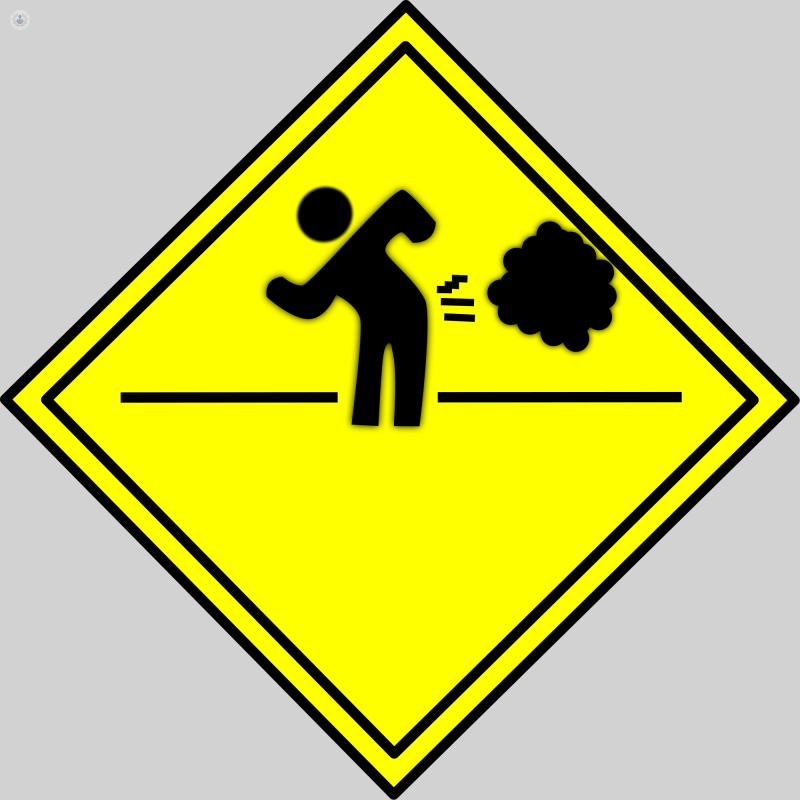Can IBS be cured and why does it cause gas? Part 2
Written by:Welcome to the second part of this guide to irritable bowel syndrome (IBS) – a common digestive condition that can involve abdominal pain, bloating, and irregular bowel movements. Top Doctors talked to expert gastroenterologist Dr Michael Mendall, who provides the answers to all the questions you might have about this condition – how to treat IBS, can IBS be cured, and the connection between IBS and gas.

Why does IBS cause gas?
It’s actually the gas that causes the IBS. It may be that the patient has the wrong balance of bacteria in the intestine, which means that food is not digested properly. A large amount of bacteria in the large intestine (and, to a lesser extent, the small intestine), ferments the partially digested food, which creates gas. The gas will make you feel distended and bloated – classic symptoms of irritable bowel syndrome, as is the flatulence which usually follows. When the food material in your gut is only partially digested like this, it can also cause diarrhoea.

Can IBS be cured?
In certain instances, genuine intestinal conditions such as coeliac disease and Crohn’s disease can masquerade as irritable bowel syndrome, and, as there are effective treatments for these, it can appear that IBS has been cured, when in fact it was not IBS in the first place. For specific intolerances, in a sense you can cure it by cutting the specific food out of your diet. For example, people whose irritable bowel syndrome is due to wheat intolerance can be “cured” by simply avoiding wheat.
How to treat IBS
The first option is simply to change your diet. Tablets can be taken if changing diet doesn’t work. There are tablets that cause spasm in the bowel, laxatives and anti-diarrhoea tablets. One cause of irritable bowel syndrome is bile salt malabsorption (when you don’t absorb bile properly), and this can be treated by drugs, which contain a resin that binds the bile and stops it irritating the bowel. This is particularly likely in people with gallbladder problems or who have had their gallbladders removed
Very low doses of antidepressants can be used to treat IBS. There are also lots of new drugs that work in different ways, and have been shown to be effective, but not much more so than the aforementioned treatments.
If you are showing symptoms of IBS, you may want to consult your GP or a specialist.
You can read the first part of Dr Mendall's interview here.


